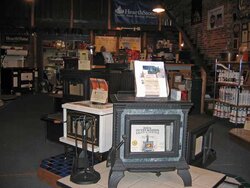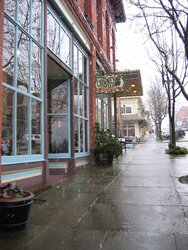After trying to buy a new stove for my home and realizing all the shops I went to new less than me, I've been researching the matter and thinking about putting in a stove shop.
I would like to hear what factors /elements you think make a good stove shop?
Is the best stove shops standalone? In our area it's popular to have pool and hearth shops and there is always the hardware and lumber stores. To me it seems the pool and hearth shops tend to see you coming, by that I mean they usually only handle hi-end products and charge a premium full retail for their items and the ones I went to were the least proficient in answering my questions!
Naturally we would have to be in a position to have our training and things in place to offer expert advice, professional installation with a good product offering.
I currently own a business/retail location with good traffic flow and have a 600 square-foot area that could be added for a stove and hearth showroom? Winter is our off-season so I'm thinking this might be a good match? My initial thoughts are to focus on woodstoves with low to high end products in several brands and have very limited offerings with pellet and inserts?
The location is the Midsouth we have a TSC in our town the closest stove shop is 25 miles from the proposed location. I already have some decent purchasing networks I just bought a USSTCO American Harvest 6041 for $480 off regular dealer price as well as discussing direct accounts with stove distributors.
Love to hear your comments and observations?
Sent from my iPad
I would like to hear what factors /elements you think make a good stove shop?
Is the best stove shops standalone? In our area it's popular to have pool and hearth shops and there is always the hardware and lumber stores. To me it seems the pool and hearth shops tend to see you coming, by that I mean they usually only handle hi-end products and charge a premium full retail for their items and the ones I went to were the least proficient in answering my questions!
Naturally we would have to be in a position to have our training and things in place to offer expert advice, professional installation with a good product offering.
I currently own a business/retail location with good traffic flow and have a 600 square-foot area that could be added for a stove and hearth showroom? Winter is our off-season so I'm thinking this might be a good match? My initial thoughts are to focus on woodstoves with low to high end products in several brands and have very limited offerings with pellet and inserts?
The location is the Midsouth we have a TSC in our town the closest stove shop is 25 miles from the proposed location. I already have some decent purchasing networks I just bought a USSTCO American Harvest 6041 for $480 off regular dealer price as well as discussing direct accounts with stove distributors.
Love to hear your comments and observations?
Sent from my iPad





